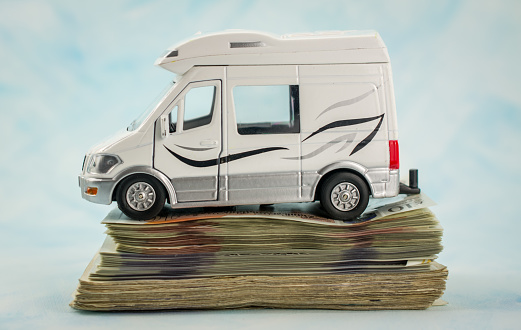
The factors that affect car insurance are often mysterious. Many insurance companies also see a lot of other data about you to determine your insurance rates, like your gender and your credit score, etc. Every auto-insurer has a way of assessing risk and setting rates.
What exactly goes into the pricing of your car insurance premiums? There is not any perfect answer to this question. Still, insurance firms take a closer look at all the personal and socioeconomic characteristics to set rates, and you cannot control some of those. Such as your age, but a few things we can’t change. Also, once your provider sees you are a high-risk driver, they might require you to get high-risk auto insurance which will cost you significantly more. That’s why in this article, we are giving you five factors that will help you determine the cause of your increased car insurance rates.
1. Credit History
In many states, insurance companies can access information from your credit report to give you the insurance score based on your credit, which is quite similar to credit scores, to help determine your premiums. It helps insurers predict the likelihood of your filing a claim and the likely cost of that claim.
People with bad credit tend to file claims more often, which tend to be more expensive.
On average, a 40-year-old driver with poor credit reported to the insurer pays about twice as much for the car insurance as the equivalent driver with good credit.
Even if you pay your bills on time, it can be a huge factor in affecting your car insurance rates. In many countries, insurance firms use a credit-based insurance score, which is way more different from your regular insurance score, to set up the prices.
2. Marital Status
More than you may realize, marital status plays a significant role in policy rates. Most of the biggest auto insurance companies have lower rates for married drivers against those who are single, widowed, divorced, separated, etc.
Auto insurers say that married people are safer drivers, drive responsibly, and have fewer accidents than singles. That is why they should have lower rates than others.
3. Location
The place where you live can also result in higher car insurance rates. If you tend to live in an area with higher rates of accidents, vandalism, or theft, you would typically see higher insurance premiums because they are more likely to file a claim. Each state also has its own insurance requirements masking premiums vary widely across the United States. Rates will vary by ZIP code and even by specific neighborhoods, which is why comparison shopping is so important.
4. Education and Job
Many insurers tend to consider the level of education and job when setting rates.
Auto insurers mostly charge higher rates to those drivers who are less educated and are in certain occupations. For instance, a factory worker with a high school degree would be charged higher annual premiums than a supervisor with a college degree, even if they have the same driving record.
Your job designation and position count greatly in setting up your insurance rates. Most firms charge more to those who have a blue-collar job than a white-collar job because it is considered that the less educated drivers and drivers with certain occupations are more likely than others to file insurance claims.
5. Your Car
You might have never thought about it, but yes! Car insurance rates are also determined by which type of car you drive. Your SUV insurance rates will not be the same as your old Nissan Sentra’s insurance rate. If you drive a built-in vehicle with security features such as anti-theft devices, it may qualify for discounts on the car insurance premium. The more features in a vehicle, the more it affects the cost of the policy. However, if you drive an expensive car with low-security features, you would have to pay more premiums.
Other factors that affect the rate of car insurance are how many miles you drive each year, where you park your car and the number of extra expensive features the car or vehicle has.
Rising Insurance Costs
It can be pretty frustrating when you see your insurance bill and see that your premium has increased. It happens because the insurance company has access to your information, and any changes in your financial choices affect your rates. Unfortunately, rising insurance premium costs are a reality that cannot be avoided in the world of personal and business insurance, and sometimes you don’t even know how and where it happened. However, you can know exactly how your car insurance rates increase without your knowledge with the article above.












